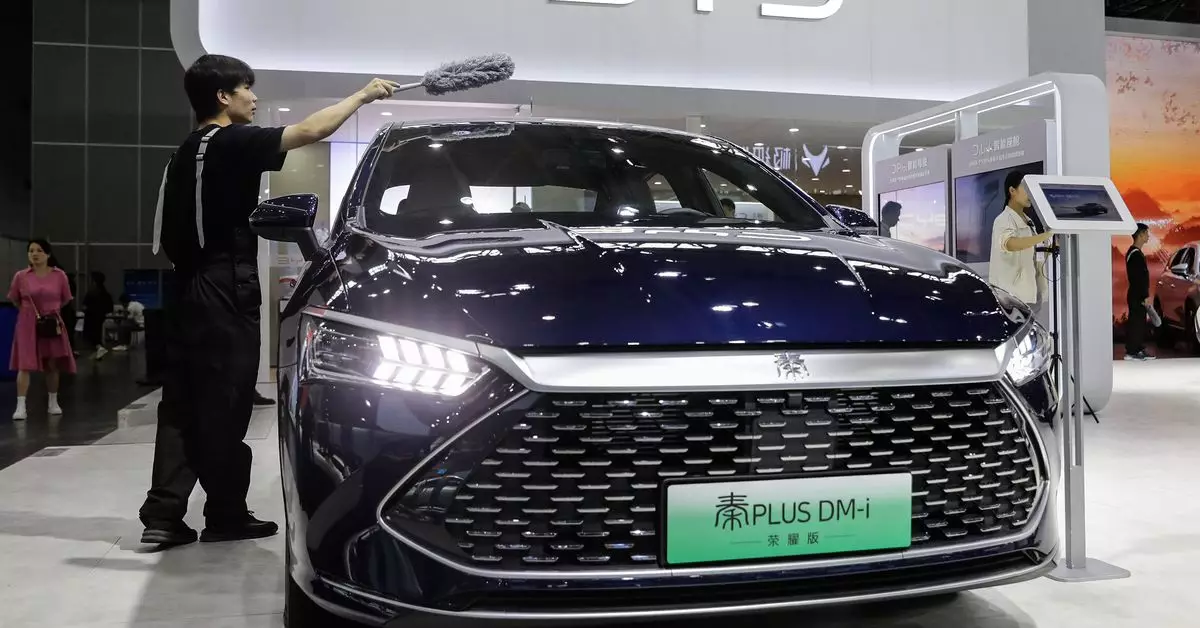The Biden administration’s recent announcement regarding the ban on connected vehicle software imported from “countries of concern,” particularly China, has significant implications for the automotive industry and national security. As the world becomes increasingly interconnected, the safety and security of technologies used in vehicles must adapt to a new landscape of risks, yet the proposed measures may also catalyze unforeseen consequences.
In the digital age, vehicles are no longer just mechanical machines; they are sophisticated networks of technology that interact with the world. The government’s assertion that connected vehicles equipped with Chinese-origin software and hardware present “acute” threats to national security goes beyond mere speculation. Potential scenarios such as remote vehicle disabling and data harvesting raise valid concerns about the potential for sabotage and espionage. This situation mirrors broader anxieties around cybersecurity that permeate various sectors, from critical infrastructure to personal privacy.
At the heart of the investigation led by the Commerce Department is a growing recognition that foreign adversaries might exploit vulnerabilities in connected technologies to gain insights into sensitive information about American citizens and national infrastructure. Such fears have led to an urgent reevaluation of dependencies on foreign tech, thrusting national security into the forefront of policy conversations around technology and trade.
The proposed regulations, effective for model year 2027 for software and 2030 for hardware, will necessitate American manufacturers to eliminate Chinese software and components from their vehicles. This requirement could disrupt the supply chain and create additional costs for auto companies that may struggle to find viable replacements in a competitive market. The current landscape is exacerbated by Chinese manufacturers rapidly advancing in the electric vehicle (EV) sector, offering budget-friendly models that appeal to cost-conscious consumers.
For instance, the BYD Seagull has emerged as a symbol of China’s prowess in affordable EVs, boasting a competitive price and decent range. Even with tariffs applied, the Seagull would remain more affordable than many domestic options. Such economic dynamics have created a precarious situation for U.S. manufacturers who fear that they may not compete effectively without strategies for market adjustment.
The introduction of steep tariffs on Chinese imports, including a staggering 100% on electric vehicles and spikes on batteries, reinforces the U.S. government’s hardline trade policies. While these tariffs aim to protect American jobs and businesses, detractors argue they might inadvertently hurt consumers through elevated vehicle prices. The current narrative around protectionism reveals the delicate dance between encouraging domestic manufacturing and maintaining consumer accessibility.
Moreover, prominent figures in the auto industry, like Tesla’s CEO Elon Musk, have expressed disparate views, highlighting the complexities of this issue. Musk has previously warned that without tariffs, the U.S. auto industry could face a destructive blow from Chinese competition, yet he later voiced opposition to such trade restrictions.
The conflicting sentiments underscore a growing concern that heavy-handed economic measures may not only undermine competitive dynamics but also hinder innovation within the U.S. automotive sector.
Amid growing tensions, an essential question arises: How can the U.S. government uphold national security without stifling innovation and market competition? The answer requires a nuanced approach that considers technological development alongside strategic protections. Instead of blanket bans and tariffs, a more sophisticated framework could facilitate smart partnerships between American and allied manufacturers while fortifying national security.
As businesses and policymakers navigate these challenging waters, consideration must be given to fostering innovation, ensuring cybersecurity, and maintaining fair competition. Collaborative efforts could shield American interests while promoting technological growth, emphasizing the need for dialogue rather than divisiveness.
The implications of proposed software restrictions on EVs stretch beyond trade; they touch upon the core tenets of national security and technological advancement. In pursuing a course of action, it is vital for the U.S. to be strategic—focused not merely on alienating competitors but instead on fostering a safe and competitive automotive landscape for the future.


Leave a Reply